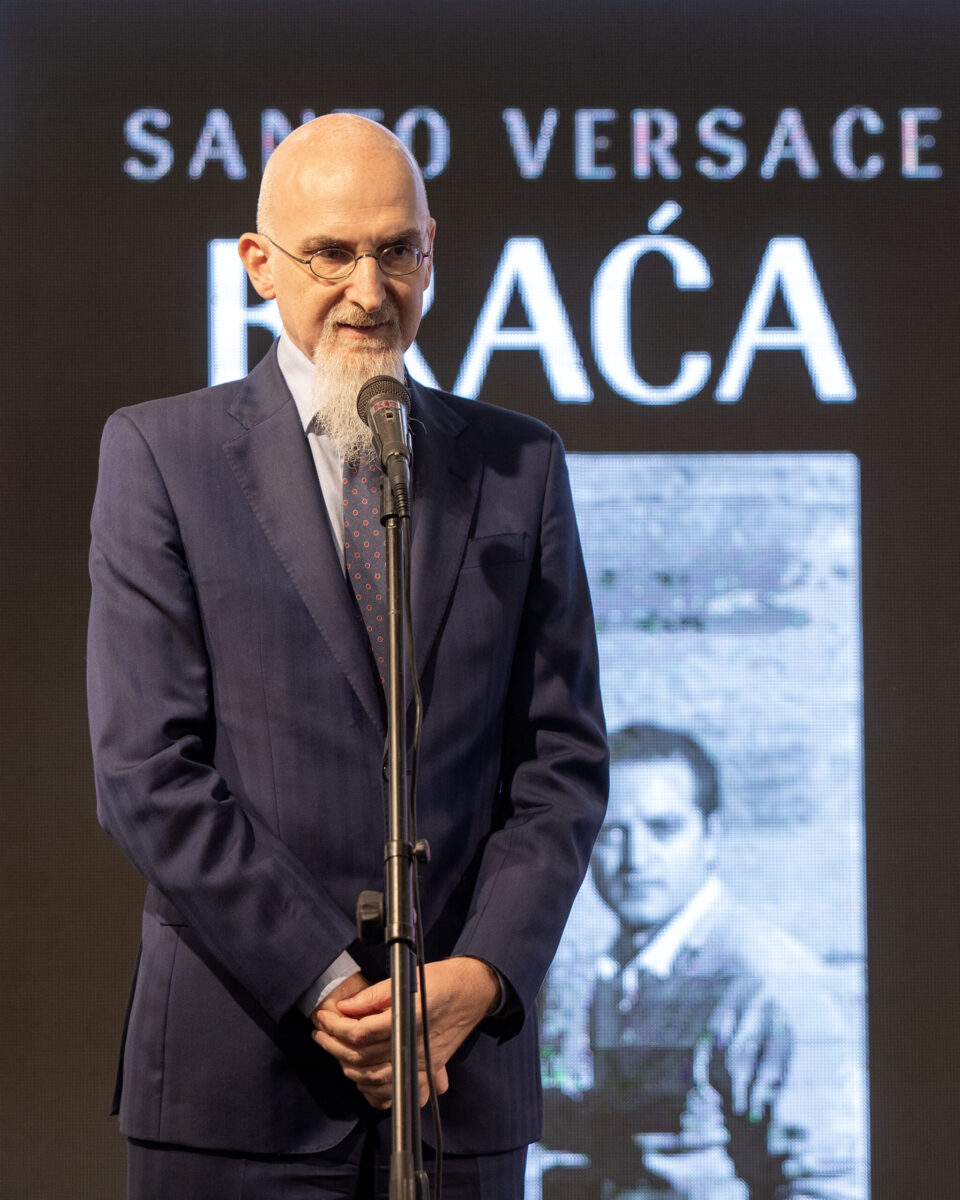Italy today plays a pivotal role in defending freedom and democracy and addressing shared global challenges
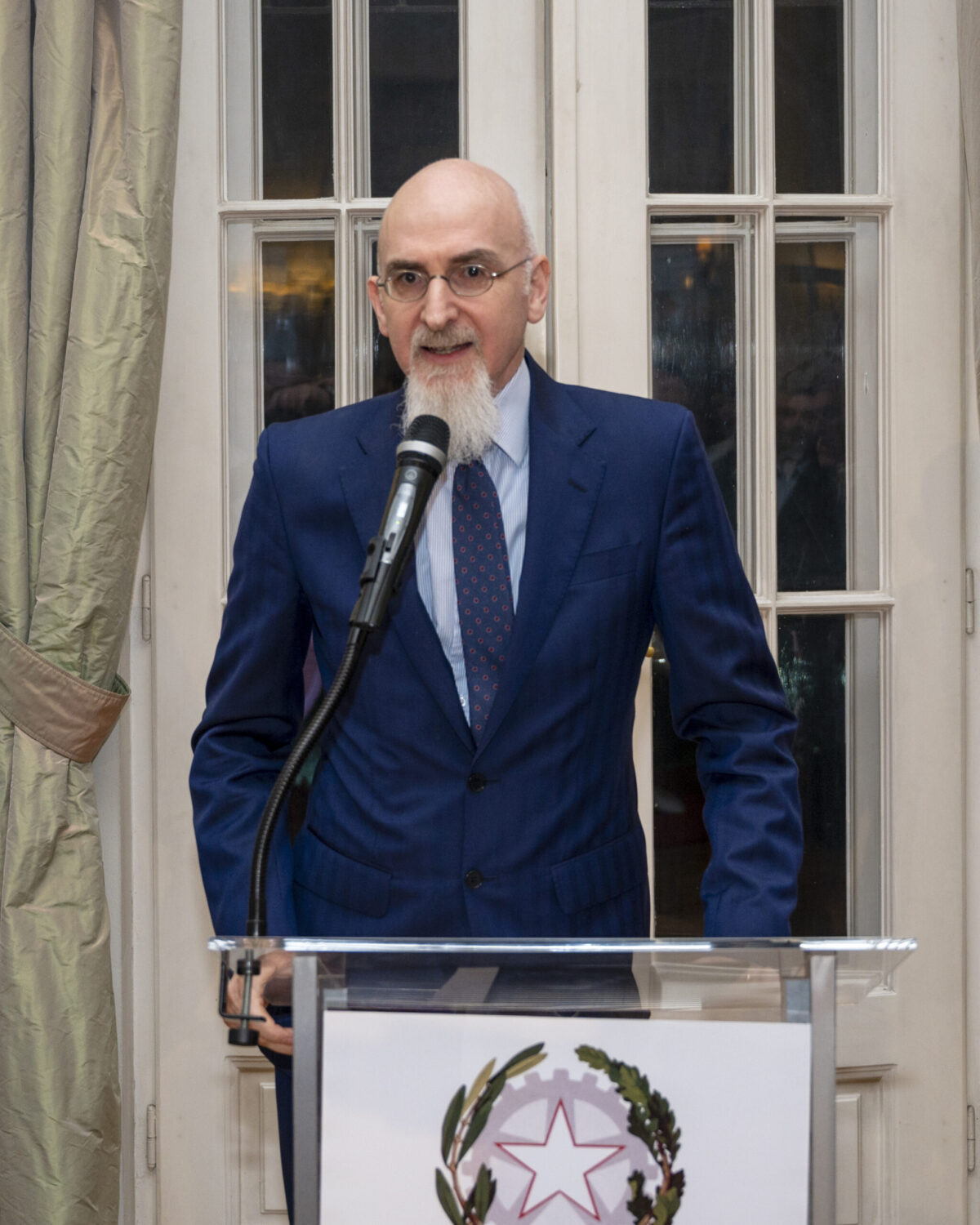 On the occasion of Italy’s national holiday, we spoke with H.E. Luca Gori, the ambassador of this country to Serbia, who emphasized Italy’s pivotal role in defending democracy and highlighted Italy’s firm position regarding Serbia’s accelerated accession to the EU.
On the occasion of Italy’s national holiday, we spoke with H.E. Luca Gori, the ambassador of this country to Serbia, who emphasized Italy’s pivotal role in defending democracy and highlighted Italy’s firm position regarding Serbia’s accelerated accession to the EU.
The National Day of Italy, known as “Festa della Repubblica” (Republic Day), is celebrated on June 2nd each year. This day commemorates the institutional referendum held in 1946, in which Italian citizens voted to abolish the monarchy and establish a republic in its place. Where is Italy today, and how does your country face major global challenges?
The 2nd of June is the National Day of the Italians, the anniversary of the founding of the Italian Republic. Since the historical step taken by the Italian people in the 1946 referendum, decades have passed and Italy today plays a pivotal role in defending freedom and democracy and addressing shared global challenges. We have currently the Presidency of the G7. We remain engaged, as funding member, in shaping the future of the EU. We are an important secutiry provider in the context of the Atlantic Alliance.
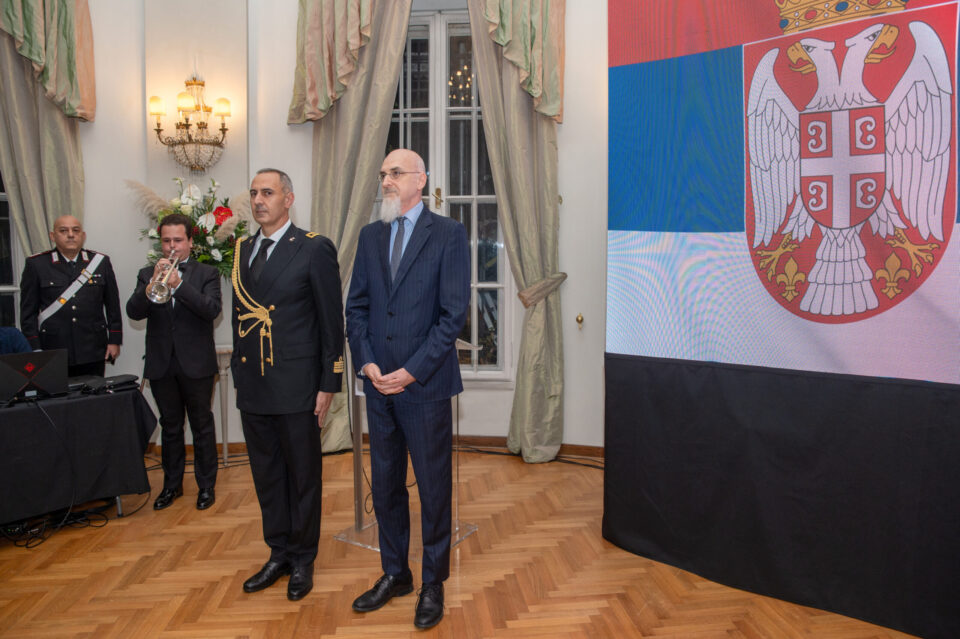 Looking at the economic sector, Italy plays a pivotal role in global trade with “Made in Italy” exports hitting the record amount of 420 billion euros last year only, surpassing South Korea as the world’s fifth-largest exporter. Italy is also committed in combining economic growth with environmental protection towards a greener economy and ranked first in the EU for an innovative circular economy system.
Looking at the economic sector, Italy plays a pivotal role in global trade with “Made in Italy” exports hitting the record amount of 420 billion euros last year only, surpassing South Korea as the world’s fifth-largest exporter. Italy is also committed in combining economic growth with environmental protection towards a greener economy and ranked first in the EU for an innovative circular economy system.
Italy is currently the third commercial partner of Serbia
What are the key areas of cooperation between Italy and Serbia, and how do you envision strengthening these ties in the coming years?
Italy has always looked at Serbia as a strategic partner and our bilateral relations are excellent. Furthermore, this year we will strengthen our ties celebrating some significant anniversaries: 145 years from the establishment of bilateral diplomatic relations; 15 years since the signature of the Strategic Partnership; and 100 years since the construction of the Italian Embassy in Belgrade.
Together with Belgrade, Rome can handle some crucial challenges. Peace and stability in the region, migration flows, growth and the economic development, technological innovations: these are the fields where Italy and Serbia are cooperating. There is an ongoing high-level political dialogue between our countries, which also led to the official visit of the Italian Prime Minister Meloni last December in Belgrade.
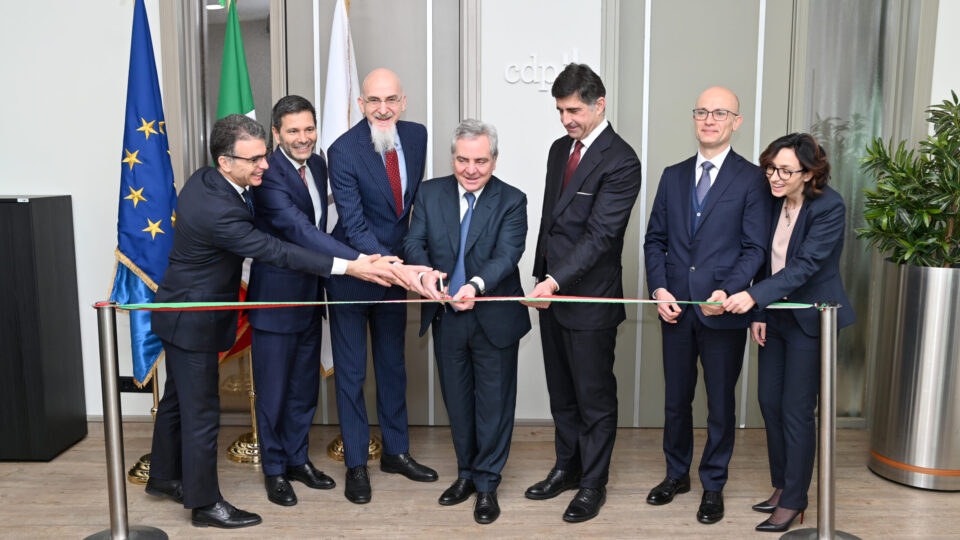 Looking at the economic sector, Italy is currently the third commercial partner of Serbia (with 4,4 billion euro of bilateral trade in 2023) and one of the main investors in the country (the second one, according to RAS, from 2007, according both to the number of the projects and to the values of the FDIs). Nevertheless, we think it is time to renew our economic cooperation by focusing on different sectors, in particular green and energy transition, agri-tech, infrastructure and artificial intelligence. Furthermore, last year we reinforced our institutional presence in Serbia with the establishment of SIMEST, SACE and CDP representative offices in Belgrade, which add to the locally rooted system of Italian actors – the so-called “Sistema Italia”.
Looking at the economic sector, Italy is currently the third commercial partner of Serbia (with 4,4 billion euro of bilateral trade in 2023) and one of the main investors in the country (the second one, according to RAS, from 2007, according both to the number of the projects and to the values of the FDIs). Nevertheless, we think it is time to renew our economic cooperation by focusing on different sectors, in particular green and energy transition, agri-tech, infrastructure and artificial intelligence. Furthermore, last year we reinforced our institutional presence in Serbia with the establishment of SIMEST, SACE and CDP representative offices in Belgrade, which add to the locally rooted system of Italian actors – the so-called “Sistema Italia”.
Italy has been a vocal supporter of Serbia’s European integration process. What role do you see Italy playing in facilitating Serbia’s path towards EU accession, particularly regarding reforms and regional stability?
Italy continues to be a staunch supporter of the European path of Serbia. Today EU enlargement, has returned to be a priority on the European Union political agenda. It is time for a deep acceleration in the integration process of Serbia and the Western Balkans into the EU.
Today EU enlargement, has returned to be a priority on the European Union political agenda
Italy understands the frustration of the Serbian public opinion towards the length of the EU integration process and is committed to speed it up. Serbia, on the other hand, has to seize the regained momentum and implement all the steps required to take advantage of the tools made available by the EU, starting with the Growth Plan. The Growth Plan can be a real booster in this phase, since it aims for the gradual economic integration of the region into the Single Market and can provide funding for up to 6 billion euros to the Western Balkans’ countries. Italy is confident that Serbia will be able to fulfil what is required by the EU to make substantial progress in its accession process. We are in favour of opening cluster 3 as soon as possible.
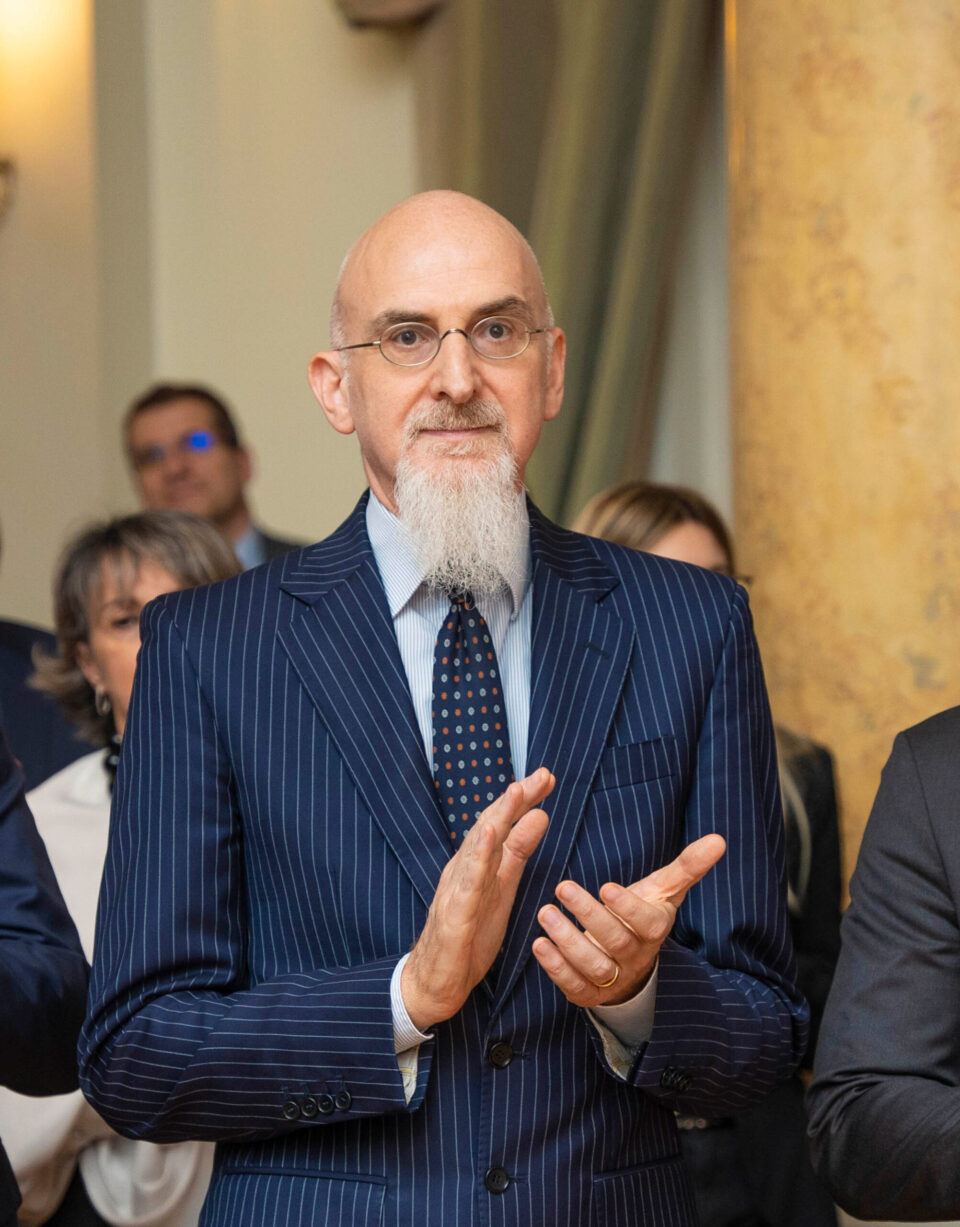 Cultural exchange is often a significant aspect of diplomatic relations. How do you promote Italian culture and language in Serbia, and vice versa?
Cultural exchange is often a significant aspect of diplomatic relations. How do you promote Italian culture and language in Serbia, and vice versa?
Cultural diplomacy is very important to us. This year, together with the Italian Cultural Institute, we organized numerous events, screenings, exhibitions, and concerts, featuring renowned Italian artists such as Michelangelo Pistoletto and Stefano Bollani.
Furthermore, few weeks ago we successfully launched the second edition of IFIB – Italian Fashion in Belgrade, a series of initiatives dedicated to Italian fashion. We also inaugurated “Bircaninova@100,” an umbrella event sponsored by Banca Intesa and Unicredit, commemorating the centenary of the laying of the first stone of the historic Residence of the Italian Embassy. Construction of the building began in 1924, at the behest of Queen Consort Elena of Montenegro.
In the next future we will have several concerts to pay tribute to the renowned Italian composer Giacomo Puccini on the 100th anniversary of his death. Then, in September, we will have also the Italian Serbian Film Festival.
Additionally, we will continue to promote traditional appointments, including Italian Design Day, Made in Italy Day, the Week of the Italian Language in the World, Italian Cuisine Week, and more.
The Italian language promotion has a key role in our cultural activities. Last September we organized the first Gala dedicated to our mother tongue, hosting a lot of Serbian friends that are also Italian speakers: from artists to actors from singers to sportspersons. We firmly believe that this kind of occasions together with our rich calendar of cultural events serves as a tool for promoting the Italian language and enticing individuals to explore the wide array of Italian language courses offered by the Italian Cultural Institute in Belgrade.
Economic cooperation between Italy and Serbia has seen significant growth in recent years. What initiatives or strategies are being implemented to further enhance bilateral trade and investment between the two countries?
We are following two main strategies:
On the one hand, the organization of big bilateral events to put in contact the mutual business communities. The first one was the Business and Science Forum held in Belgrade in March last year. It saw an extraordinary participation of the two economic ecosystems: almost 150 companies from Italy and 250 from Serbia, over 450 B2B and 13 signed agreements. Given its success, the second edition of the Forum was organized a few days ago, on May 24th, in Trieste, with around 400 Italian companies and 5 agreements signed. Serbia is the only Country with which Italy has organized two economic forums in just one-year period. But Italy was also the Country Partner of the International Agricoltural Fair in Novi Sad last year with around 25 companies and we took part in the “Wine Vision” Fair with almost 50 companies.
On the other hand, the launch of significant financial tools by our three major national financial institutions.Indeed, Cassa Depositi and Prestiti, SACE and SIMEST , have signed substantial agreements with Serbian counterparts to to boost Italian investments in Serbia, as well as to support Serbian energy transition, for a total amount of almost 500 million euros.
Italy understands the frustration of the Serbian public opinion towards the length of the EU integration process and is committed to speed it up
We want to continue working in this direction by leveraging the very positive momentum.
The Western Balkans region has faced various challenges, including political instability and unresolved conflicts. What role does Italy play in promoting peace and stability in the region, and how can Serbia contribute to these efforts?
The Western Balkans have always had strategic importance for Italy. Our country is aware of its responsibility towards the area and works to preserve its stability and create a peaceful future. Italy is the first European contributor to the security of the region with the KFOR and EUFOR Althea missions and intends to continue in this direction with the utmost determination. We strongly support the European integration of the Western Balkans and, with such aim, we created together with other EU Member States the “Friends of the Western Balkans” group, which strongly supports EU enlargement to the Western Balkans and calls for speeding up the process. Within this initiative, last February we hosted in Rome a Ministerial meeting attended by the Foreign Ministers of the region. Pursuing of regional integration within the Western Balkans is paramount and Serbia has an important role to play. Belgrade constructively contributes to all regional cooperation initiatives and we are confident that such commitment will allow Serbia to benefit of the EU’s Growth Plan, in order to strengthen the integration within the region and accelerate its integration into the EU.
Italy is renowned for its expertise in areas such as renewable energy, infrastructure development, and cultural heritage preservation. How do you see these areas of expertise being leveraged to benefit Serbia’s development goals and enhance bilateral cooperation?
Italy has long been a champion of sustainable practices, recognizing that economic growth must go hand in hand with environmental protection and social responsibility.
As I said, we are leaders in Europe for circular economy: our total recycling rate – both of urban and special waste – reached 83.4% in 2022: significantly higher than that of all major European economies. Italy is also a champion in efficiency: with a score of 274 out of 300, Italy leads Europe in resource efficiency index, which measures the ability to produce goods while reducing the use of raw materials, water, energy, and greenhouse gas emissions.
We believe that our experience in these sectors could definitely help Serbia in its path to the UN SDGs and at the same time create business opportunity for our companies. Circular economy and sustainability were indeed at the core of the two Business Forums that we have organized. Morever, SIMEST, SACE and CDP have tailor-made tools on sustainable investments and decarbonization in Serbia.
Confindustria Serbia has recently launched its ESG lab to advance the sustainability agenda for businesses, while the Italian-Serbian Chamber of Commerce has established an “Ekonsortium”, open to the participation of both Italian and Serbian companies, to promote the recycling of industrial waste, in particular textile.
Regarding the conservation of the cultural heritage, Italy, of course, being the country with the largest UNESCO cultural heritage in the world, attach a great importance to such activity and has carried out different initiatives in the past in Serbia. We would like to revive the bilateral cooperation also in this sector.
